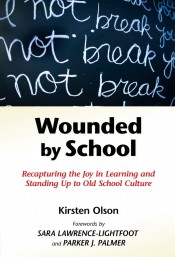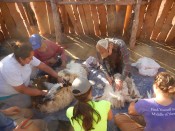 Bringing Love to Learning for a Lifetime
Bringing Love to Learning for a Lifetime Bay Area Teacher Training
Bay Area Teacher Training Train to Teach in Seattle
Train to Teach in Seattle The Journey is Everything
The Journey is Everything Summer Programs - Culminating Class Trips
Summer Programs - Culminating Class Trips Full-Time Teacher Education
Full-Time Teacher Education Roadmap to Literacy Books & Courses
Roadmap to Literacy Books & Courses Waldorf Training in Australia
Waldorf Training in Australia Everything a Teacher Needs
Everything a Teacher Needs Middle School Science With Roberto Trostli
Middle School Science With Roberto Trostli ~ Ensoul Your World With Color ~
~ Ensoul Your World With Color ~ Apply Today: New Cohort Starts Nov. 2025
Apply Today: New Cohort Starts Nov. 2025 Waldorf-inspired Homeschool Curriculum
Waldorf-inspired Homeschool Curriculum
 Caring for All Stages of Life
Caring for All Stages of Life Quality Education in the Heartland
Quality Education in the Heartland Flexible preparation for your new grade
Flexible preparation for your new grade Association for a Healing Education
Association for a Healing Education Jamie York Books, Resources, Workshops
Jamie York Books, Resources, Workshops Transforming Voices Worldwide
Transforming Voices Worldwide Space speaks. Its language is movement.
Space speaks. Its language is movement. Immersive Academics and Arts
Immersive Academics and Arts Great books for Waldorf Teachers & Families
Great books for Waldorf Teachers & Families
Would you like to become a sponsor?
Waldorf News
Student flipping house for senior project
February 20, 2016
POTTSTOWN, PA--When Hannah Wolfram, a senior at Kimberton Waldorf School, was trying to come up with an idea upon which to base her senior project, she decided to defy expectation. "Anything performance-based was kind of what the expectation was," Wolfram said. "I decided I'd go out on a limb and do something I had never done before that was completely unexpected." A lover of the performing arts who enjoys contributing her singing and acting talents to the private school's theater productions, Wolfram decided she wanted to take on the challenge of flipping a house as the focus of her project. More »

Benefits of a Biodynamic Education: Students at High Mowing School uncover more than just science lessons from horticulture study
February 8, 2016
Abbot Hill in Wilton, New Hampshire, is home to High Mowing School, a Waldorf boarding high school, and Temple-Wilton Community Farm, one of the first biodynamic community supported agriculture (CSA) programs in the U.S. Also nearby is the Yggdrasil Land Foundation, an agricultural land trust committed to protecting biodynamic farmland. The result of such close proximity has been an extraordinarily collaborative project between High Mowing, which purchased farmland adjacent to its campus, and Yggdrasil, which purchased the conservation easement rights. The protected land is now used by the school, and is also leased to Temple-Wilton to support its grazing and feed needs. In the midst of all this activity, Brad Miller, a biodynamic farmer turned teacher at High Mowing, developed an innovative horticulture program that engages students in the many facets of stewarding land while learning life lessons from it. Katrina Steffek, RSF’s chief operating officer, spoke with Mr. Miller about what his students gained in their study of diversified and balanced farm ecosystems. More »

How Does School Wound? Kirsten Olson Has Counted Some Ways: Dr. Kirsten Olson’s interviews identified seven kinds of school wounds
February 1, 2016
Wounds of creativity: School stifles creativity. This is perhaps the most obvious wound of school. Students' own passions and interests are generally ignored. Students' unique, creative ways of solving problems and their outside-the-box answers to questions, which fail to match the teachers' answer sheets, are not understood and are graded as wrong by busy teachers. Rote learning and tests that have one right answer for every question leave no room for creativity. Olson's informants who went on to live creative lives apparently did so despite, not because of, schooling. They had to recover or rebuild the creative spirit that had been so natural to them before starting school. My own guess is that altogether too many others rarely think about creativity once they have lost it in school; they may not even notice this wound. And then there are those who remain creative in those realms that school doesn't touch, but become uncreative in the realms covered by the school curriculum. How many people have totally lost mathematical creativity because of the ways it was taught in school? More »

A different kind of eighth grade trip
January 26, 2016
Deer Hill Expeditions creates opportunities for meaningful 8th Grade class trips for Waldorf schools by facilitating real and genuine challenge in beautiful landscapes. Whether it’s the fun and adventure of a rafting expedition, or the uniqueness of an introduction to life in the Navajo Nation, or both, participants on Deer Hill programs have the chance to find their strengths in real experiences. Waldorf School of Orange County teacher, Miriam Whiteley, put it best in a letter to Deer Hill after an expedition designed for her 8th Grade class. More »

What one college discovered when it stopped accepting SAT/ACT scores
January 23, 2016
Hampshire College is a liberal arts school in Massachusetts that has decided not to accept SAT/ACT scores from applicants. That’s right — the college won’t accept them, a step beyond the hundreds of “test-optional” schools that leave it up to the applicant to decide whether to include them in their applications. So what has happened as a result of the decision? For one thing, U.S. News & World report has refused to include Hampshire in its annual rankings. For another, Hampshire officials say, this year’s freshman class, the first chosen under the new rules, is more qualified by other measures than earlier classes. Hampshire College was founded in 1970 as an alternative private liberal arts college that experiments with curriculum and relies on portfolios of work and narrative evaluations rather than distribution requirements and grades. It is one of the top colleges in the nation in terms of the proportion of its graduates who go on to graduate school. Here’s an explanation of what the college did regarding SAT/ACT scores and why, from President Jonathan Lash, who is also a director of the World Resources Institute, a D.C.-based environmental think tank, where he previously served as president. He chaired former President Bill Clinton’s Council on Sustainable Development and was Vermont’s environmental secretary and commissioner. He holds a law degree and master’s degree in education from Catholic University of America and a bachelor’s from Harvard College. More »
 Recent Jobs
Recent Jobs
View more jobs »
 Newsletter Archive
Newsletter Archive
 Join the Mailing List!
Join the Mailing List!
Stay Connected…
Each week receive the Waldorf News Weekly Update, full of news, events, and more. Keep abreast of what's happening with Waldorf education.
 RSS Feeds
RSS Feeds